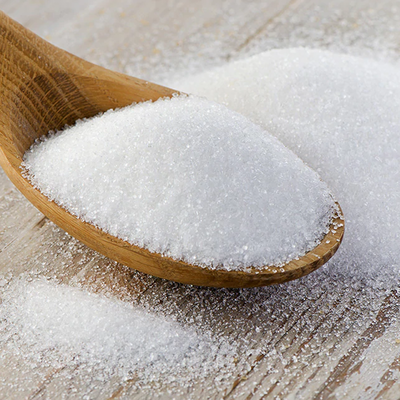Artificial sweeteners are hardly new and have been around for well over 50 years. In fact, the very first artificial sweetener, saccharine, was inadvertently discovered over 100 years ago in 1878 by chemist Constantin Fahlberg while eating his dinner roll. Since its discovery, though, many more have hit the marketplace: acesulfame potassium, aspartame, neotame, sucralose and stevia are just a few. However, many artificial sweeteners have a bad reputation – a reputation that is typically founded in the public with pseudo-science at the helm. So what is the truth? Are they good? Are they bad?
It’s important to understand that all food additive approvals are based on rigorous hazard and risk characterizations. These tests typically lead to what known as an Acceptable Daily Intake (ADI) as well as a maximum level permitted in foodstuffs (MPL – maximum permitted level). Without getting into too much technical jargon, all artificial sweeteners (including stevia) are subjected to tests that asses many thing:
- How the additive reacts in the human body
- How the additive is metabolized and excreted
- How or what toxic effects may exist at the acceptable (as well as well above) limits in foodstuffs
Simply put: formal processes exist nationally and internationally to assess and analyze test data on all food additives. Science exists for a reason – to ask questions about a topic and then thoroughly investigate to find answers. And, when an answer is found, continue to investigate and gather more data. The more data collected, the better the understanding of a topic.
So why all the commotion and vehemence towards some and not others?
That’s easy: marketing and using poorly designed research studies (i.e. not compliant with standards) to make claims. For example, when looking at sucralose (aka Splenda) it was originally marketed as “derived from sugar.” That statement alone helps to give comfort to consumers since “sugar” is a something they know and can relate to. Clinical studies have also been used to tarnish food additive reputations in that the studies were poorly designed or data misinterpreted. In fact, when looking at epidemiological scientific data worldwide the current consensus is that low-calorie sweeteners are not associated with things like preterm infant births, cancers or random vascular events – and the calorie control council agrees (link to article here).
Are artificial sweeteners beneficial for weight loss?
Yes, they most definitely are. Drs. Vanessa Perez and Paige Miller published a meta-analysis (basically looking at all the available data) in 2014 that reviewed 35 years of clinical data as it relates to the use of artificial sweeteners and weight status. They found that randomized control trials show that people who used them had “statistically significant reductions in body weight, BMI [body mass index], fat mass, and waist circumference.” And to quote the Calorie Control Council, “the highest quality science supports that artificial sweeteners can be consumed as part of a balanced diet and can assist with the reduction of cardiometabolic risk through the management of body weight and reduced caloric intake.”
In the end it’s about trusting the scientific process and the medical doctors that perform the research. Medical science has advanced us to a place where life expectancy is longer and people are genuinely living happier, healthier lives. When it comes to losing weight and living our lives, we also need to find balance. Artificial sweeteners allow us to consume lower calorie foods so that we can better manage and lose weight; and, the research shows that they’re safe when consumed so that we can continue to lose weight and lead healthier lives.

